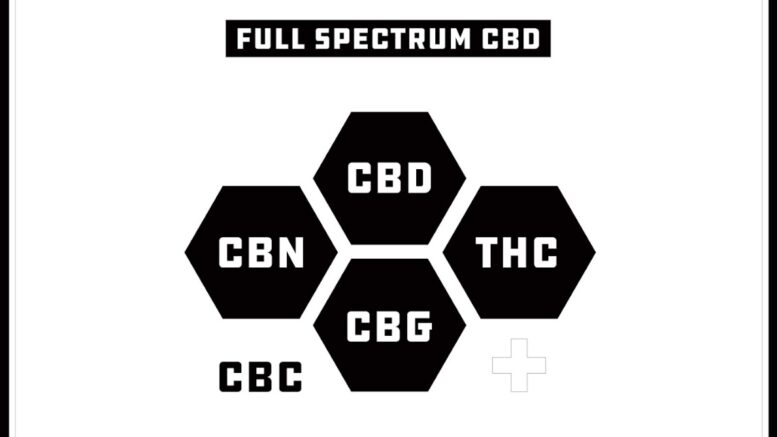The health and wellness industry has recently been abuzz with the growing interest in Cannabidiol (CBD) products. Specifically, full-spectrum CBD has drawn the attention of scientists, health enthusiasts, and consumers alike. Derived from the cannabis plant, this fascinating compound is credited with many potential health benefits.
It’s said that full-spectrum CBD is sparking a wave of innovation in natural health products and emerging as a leading player in holistic wellness. The increasing popularity of these products, like the high-quality full-spectrum CBD from Epoque Wellness CBD and other sellers, emphasizes the need for consumers to understand what they are and the science behind them.
This post aims to delve into the scientific aspects of full-spectrum CBD, its potential benefits, the safety and risks associated with using them, and many more. Read on to learn more.
What Is Full-Spectrum CBD
Understanding full-spectrum CBD starts with recognizing the plant it’s derived from – the Cannabis sativa plant. This plant contains over a hundred types of cannabinoids and other compounds, such as terpenes and flavonoids. Among these cannabinoids, CBD and Tetrahydrocannabinol (THC) are the most well-known.
Full-spectrum CBD contains all the naturally occurring compounds from the Cannabis sativa plant. This includes not only various cannabinoids such as CBD, Cannabigerol (CBG), and trace amounts of Tetrahydrocannabinol (THC) but beneficial terpenes and flavonoids as well.
The mix of the aforementioned compounds is believed to create a synergistic effect known as the ‘entourage effect.’ This theory suggests that the therapeutic benefits of the individual components of the cannabis plant are enhanced when used together, compared to being used in isolation.
Another fascinating aspect of full-spectrum CBD lies in the individual compounds themselves. Each cannabinoid and terpene have its potential therapeutic properties. For instance, CBD may exhibit anti-inflammatory effects, while CBG could contribute neuroprotective benefits.
Full-Spectrum CBD And The Endocannabinoid System (ECS)
The human body has a complex cell-signalling system known as the ECS. This system regulates various functions, from mood and memory to sleep and digestion. The ECS plays a significant role in maintaining the body’s balance or homeostasis.

The ECS interacts with cannabinoids, both those produced naturally by humans (endocannabinoids) and those found in substances like full-spectrum CBD (phytocannabinoids). This interaction triggers various biological responses, thereby influencing the functions regulated by the ECS.
Through its interaction with the ECS, full-spectrum CBD may contribute to maintaining homeostasis and overall well-being – forming the basis of the potential therapeutic benefits of full-spectrum CBD.
Full-Spectrum CBD Compared To Other Types Of CBD
Besides full-spectrum CBD, there are two other classes of CBD products known as broad-spectrum and CBD isolate. Although all of them are sourced from one plant, they exhibit differences that make each one unique.
Broad-spectrum CBD is akin to full-spectrum CBD, but the former has no trace of THC at all due to an additional step of processing. Meanwhile, CBD isolate is a pure form of CBD.
Because of the differing chemical makeups mentioned above, each type of CBD has different effects on the body.
Potential Benefits Of Full-Spectrum CBD
Current scientific research suggests that full-spectrum CBD could offer several potential health benefits. This is mainly due to the various cannabinoids and terpenes in full-spectrum CBD that are believed to have potential anti-inflammatory, analgesic, and anxiolytic properties.
Conditions that may benefit from full-spectrum CBD range from chronic pain and inflammation to anxiety and sleep disorders. The unique mix of cannabinoids and terpenes in full-spectrum CBD allows for a broad spectrum of potential therapeutic applications.
Despite the need for more comprehensive studies, the existing scientific evidence is encouraging. The current body of research showcases full-spectrum CBD as a promising natural therapeutic aid with many potential benefits.
Considerations And Potential Side Effects
Before starting a full-spectrum CBD regimen, it’s recommended that you consult with a healthcare professional.
Although CBD is generally considered safe, it can cause side effects such as dry mouth or drowsiness in some individuals. A medical expert can guide suitable dosages and potential interactions with other medications.
Informed and responsible use of CBD products is paramount. This means being aware of the potential side effects and adjusting the dosage per individual requirements. This approach ensures a safe and beneficial CBD experience.
Moreover, while CBD has the potential to offer numerous health perks, it’s important to remember that it’s not a miracle cure. Managing expectations and understanding that results can vary significantly among individuals is vital to responsible CBD use.
Conclusion
Full-spectrum CBD has diverse cannabinoids and other beneficial compounds that work together, potentially offering extensive health benefits to its users like you. The chemical interacts with the ECS, influencing various body functions and showing promise as a natural therapeutic aid.
Despite the purported potential benefits of utilizing full-spectrum CBD products, consultation with a physician is important. They’ll be able to guide you on picking the right product for you to use, what your starting dosage would be, and so on. Lastly, responsible use is non-negotiable – be a responsible steward of your own wellness.
